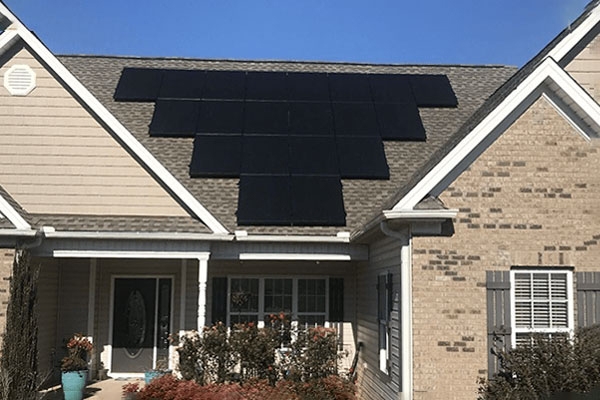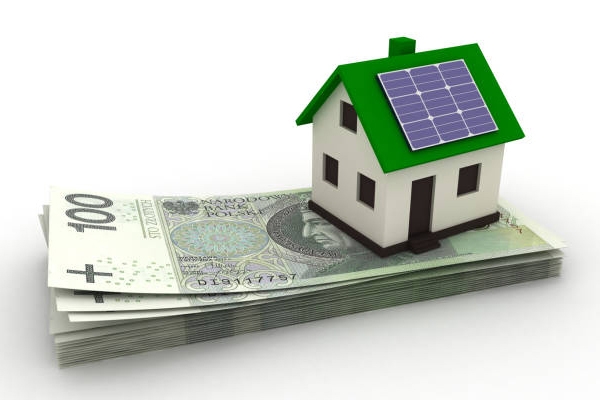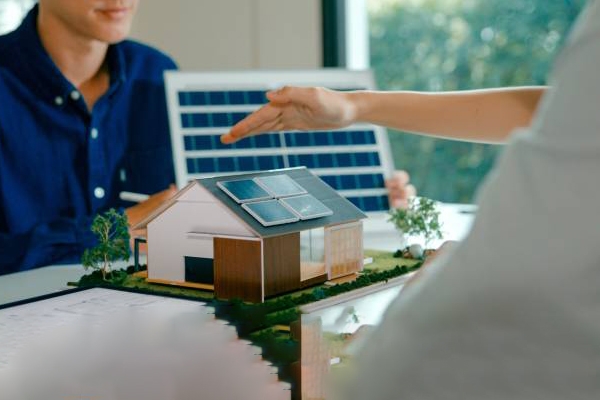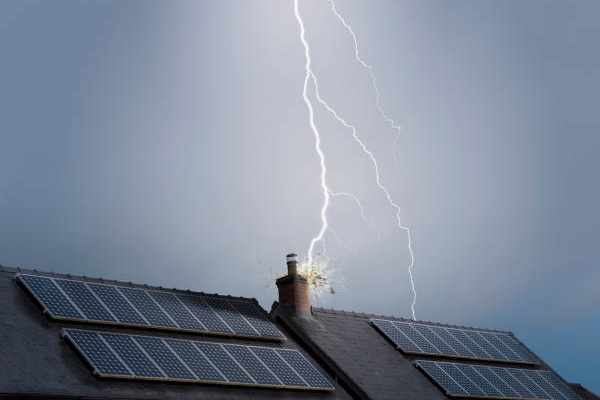Installing a solar panel system on your home is an excellent investment for homeowners. Not only can you significantly reduce your monthly energy costs, but you can also increase the market value of your property. However, due to the high cost of installing solar panels and the unique nature of their exposure to the outside environment, homeowners need to consider whether or not to insure them. Insuring solar panels can give you extra security and protect your investment in the event of an unexpected loss. Powering your home life will explore in detail whether solar panels add to homeowner's insurance, why they need to be insured, and how to choose the right insurance option.
As global environmental concerns grow, more homes are choosing to install solar panels to save on energy costs reduce carbon emissions, and support sustainability. However, installing solar panels is not just a one-time cost investment; it also involves long-term maintenance and protection. Insuring your solar panels ensures that your investment is fully protected in the event of extreme weather or other unforeseen circumstances. Next, we'll talk more about the importance of insuring your solar panels, what they cover, and how to choose the right insurance option.

Should I Insure My Solar Panels?
The Impact of Extreme Weather: Every year, homeowners across the U.S. experience a variety of extreme weather including hurricanes, tornadoes, blizzards, and more. While modern solar panels are designed to be durable enough to withstand most severe weather, they cannot completely prevent possible damage. Insuring your solar panels can provide you with an extra sense of security and make you more comfortable in the face of natural disasters. Additionally, insurance can save you a great deal of money on repair and replacement costs if Mother Nature wreaks havoc and damages your system.
Financial Security: Solar panels are notoriously expensive to install, usually in the thousands to tens of thousands of dollars. While solar panels have a long lifespan and often come with a 25+ year warranty, you may still experience unexpected damage or malfunctions during use. Being insured ensures that these unforeseen circumstances will not have a significant impact on your finances. Especially as something trouble with solar power systems is becoming an important part of your home's energy supply, it's important to ensure their safe operation.

Does Home Insurance Cover Solar Panels?
- Rooftop Solar Panels: Many homeowners are concerned about whether or not their existing homeowner's insurance policy covers newly installed solar panels. Generally, roof-mounted solar panels are considered part of your home, so your current policy may already cover them. You can contact your insurance company to confirm if your policy is unclear. Many insurance companies will include solar panels in existing policies, often at little or no additional cost.
- Ground-Mounted Solar Panels: If you choose a ground-mounted solar system, things may be different. Because a ground-mounted system is not directly attached to your home, your insurance company may consider it a different risk and decide not to include it in your existing homeowner's insurance policy. In this case, you may need to purchase separate coverage or extend your existing policy to ensure that your ground-mounted solar system is adequately covered. Alternatively, you can choose from folding solar panels or flexible solar panels.
- Consult with an Insurance Agent: Since all insurance companies have different policies and terms, it is recommended that you review your policy or consult with an insurance agent to determine if your solar panels are covered under your policy and what the coverage limits are. If your existing policy does not cover solar panels, you can discuss increasing your policy's coverage limits or purchasing additional coverage to protect your solar system.
How to Choose a Policy that Covers Solar Panels
If your current policy does not cover solar panels, you may want to consider increasing your home's coverage limits. The added value of the solar power system plus the current value of your home may exceed your current coverage limits, especially if your home's value has risen significantly in recent months or years. Contact your insurance agent to discuss how coverage limits can be adjusted to ensure that both your home and solar system are adequately protected.
The good news is that the solar market is sophisticated enough that insurance companies know how to handle the best solar panels. Also, solar panels themselves require little maintenance and typically come with a warranty of at least 25 years. Many insurance companies consider solar panels to be durable enough to be insured with confidence. Choosing an insurance company that has experience with solar systems and has clear policies in place will ensure that your enrollment process goes more smoothly.

Practical Examples of Insuring
- Case 1: Natural disaster coverage. Extreme weather events are not uncommon in many areas of the United States. One homeowner installed a solar panel system in 2019 and chose to include it in his homeowner's insurance policy. in 2020, a hurricane hit the area, and while both the home and the solar system were damaged, the homeowner avoided a huge financial loss because of the pre-insured coverage and the insurance company's quick payout for the repairs.
- Case 2: Increasing home value. Another homeowner in California noticed an increase in the market value of their home after how to installing photovoltaic panels. They contacted their insurance company and included the solar system in their existing policy. When they decided to sell their home a few years later, thanks to the solar system and the corresponding insurance coverage, the home sold for more than the average market price. This not only allowed them to save money on their energy bills, but they also received additional financial rewards when the home was sold.

How to Choose the Right Insurance Coverage for Solar Panels?
- Step 1: Assess the value of your solar system. First, you need to identify the specific value of the solar system you are installing, including the cost of the equipment and the cost of installation. This will help you determine the amount of additional insurance coverage you need.
- Step 2: Contact your insurance agent. Contact your insurance agent to discuss the specific terms of your existing policy and ask if the solar system can be included in your existing policy. If it is not possible, find out what additional costs will be incurred and possible adjustment options.
- Step 3: Compare quotes from different insurance companies. Don't limit yourself to approaching just one insurer. Compare quotes and services from several more insurance companies and choose the option that best suits your needs.
Multiple Benefits of Installing Solar Panels
- Environmental Benefits: The use of best solar panels contributes to environmental protection by helping to reduce greenhouse gas emissions and reducing dependence on fossil fuels. Every solar system installed is equivalent to a significant reduction in carbon dioxide emissions, which contributes positively to the mitigation of global climate change.
- Economic Benefits: In addition to lowering electricity bills, solar panels for home use receive subsidies from the power company by sending excess electricity back to the grid through a net metering system. Additionally, solar systems can increase the market value of your property, making your home more attractive in the future real estate market.
Installing a solar panel system on your home is undoubtedly a wise investment that will not only provide you with long-term financial benefits, but also contribute to the environment. However, to ensure that your investment is fully protected, it is recommended that you review your insurance policy carefully and adjust or add coverage to your policy as needed. By insuring your solar panels, you can get extra coverage in the event of extreme weather or accidental damage, and enjoy the many benefits of solar energy with peace of mind for decades to come.
If you are still considering whether to install or insure solar panels, we recommend contacting a professional solar company and insurance agent for more personalized advice and quotes. Sign up and get a free guide from powerhome.com to learn more about solar panels and start your solar journey today.
(1).png)
(1).png)